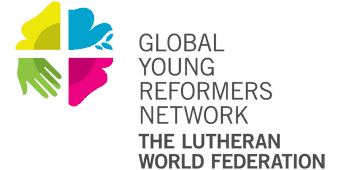Proclaiming the Gospel of Christ by caring for our common home

Proclaiming the Gospel of Christ by caring for our common home
Climate is changing. The atmosphere of the public debate on environmental protection is also changing. COP 24 clearly showed that conversations about joint actions to protect our planet are neither simple nor effective. Ecology, equitable transition and assistance to developing countries that suffer the most from climate change are very strongly associated with politics. It turns out that financial benefits and political influence are much more important than finding a real solution to how to protect the Earth. A planet that we cannot do without, but we can be sure that the planet will do really well without us
Politicians and activists like to talk a lot but much of the debate can seem incomprehensible to most people. By participating in meetings organized as part of the COP, I notice one thing in particular: we lack education on environmental protection. We have to show people that simple, everyday activities have meaning and can change the direction in which our civilization is heading. In addition to education, we also need strong and courageous leaders who will abandon their own benefits and the benefits of the governments they represent. Leaders who will become apolitical and will understand that real strength lies not in the hands of "important" people, but in the common action of simple, hard working people who are far from the glitz of political salons.
As a resident of Katowice, I am very happy that my city was able to host the UN conference. It is quite ironic that the meeting on climate policy has been organized in the heart of Silesia, a region whose history and industry are strongly associated with gritty coal mines. It is also a great place to talk primarily about honest transformation. I remember the problems that people were struggling with in the 90s when many mines were closed down. Thousands of people lost their jobs and their families were often on the verge of poverty.
I believe that solving the problem of transformation should be the main focus of the debate on changes in global climate policy, because even the best intentions are pointless if they harm whole communities at the same time.
Ecumenical and interfaith cooperation
As a delegate of the Lutheran World Federation (LWF), I participated in many ecumenical and interreligious meetings. It was a great opportunity to see how much people of faith care about climate issues. All the meetings and talks were very promising. People of different religions and Christian denominations are determined to work together for the environment, which is our common good. During the sessions, we talked about the strategies that religious organizations should adopt in order to influence people responsible for climate policy. We also discussed problems related to humanitarian aid, which is needed by the most deprived people in connection with changes occurring on earth. It is very encouraging that people associated with different religions are determined to work together to help the poorest people.
According to prognostics, we have twelve years left before a huge ecological catastrophe occurs and the existence of people on Earth will be threatened. This is not an optimistic vision. Among the discussions held at the COP there were voices suggesting that there is no hope, and our fate is sealed. As a Christian I can say one thing - hope is always there. But we cannot put it in government delegations, climate summits or non-governmental organizations. Our true and only hope is in Jesus Christ and his grace. The most important task of the Church is to proclaim the gospel, and all other tasks and activities should be only part of this mission. In my opinion, Christian organizations that are involved in climate action should focus on how to talk about Christ through environmental protection. What sense does it make to fight for people's lives if we cannot fight for their souls?
Biographical info
The author Beata Kolarczyk is a young Polish artist and member of the Evangelical Church of the Augsburg Confession in Poland. She was one of the seven LWF delegates at the 2018 climate conference in Katowice, Poland.
COP24
A delegation of young people from the member churches has been representing the LWF at the annual conference of the United Nations Framework Convention on Climate Change since COP 17 in Durban, South Africa. At COP 24, the seven delegates from each of the seven LWF regions, come with different experiences and expertise in climate action, climate advocacy and theology of creation.
